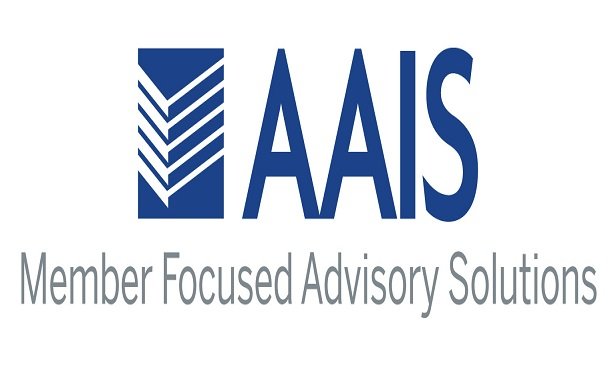Former regulators and legislators have created a new committeeaimed at putting pressure on Washington officials to continue tofocus on rules and laws aimed at reducing systemic risk infinancial markets.
|The new independent, non-partisan council will be headed bySheila Bair, former chair of the Federal Deposit InsuranceCorporation.
|Its purpose will be to “monitor and encourage regulatory reformof U.S. capital markets focused on systemic risk.”
|The Systemic Risk Council is comprised of a diverse group ofexperts in investments, capital markets and securities regulation,including senior advisor Paul Volcker,former chairman of the Federal Reserve.
|“Despite the magnitude of the financial crisis, prospects forthe major reform of regulatory systems are inadequate and vague,”the group said in announcing its creation. It will hold its firstmeeting in Washington, D.C. later this month.
|According to Bair, concerns over the slow progress of regulatorsand standard-setters prompted the creation of the council.
|The council will monitor and evaluate the activities of thosecommittees with the Congressional mandate to develop and implementDodd-Frank provisions related to systemic risk, including theFinancial Stability Oversight Council (FSOC) and the Office ofFinancial Research (OFR).
|“The great challenge is to devise a system to identify risksthat threaten market stability before they become a danger to thegeneral public,” Bair said.
|Bair is also a senior advisor to The Pew Charitable Trusts.
|“As evidenced by the 2008 crisis and even recent headlines, weneed a more effective and efficient early-warning system to detectissues that jeopardize the functioning of U.S. financial marketsbefore they disrupt credit flows to the real economy,” Bairsaid.
|“And two of the most critical tasks are how to impose greatermarket discipline on excess risk taking and effectively end thedoctrine too-big-to-fail,” she said.
|Insurance regulation was not cited as thereason the group was forming the new panel.
|But the insurance industry has put great pressure on the Obamaadministration through members of Congress to thwart efforts by theFSOC and the OFR, which is located within the Treasury Department,to increase federal oversight of state-regulated insurancecompanies.
|These agencies were created by the Dodd-Frank financial servicesreform law to monitor risks created, for example, by the problemsat American International Group.
|In comments following publication of a final rule the FSOC willuse in evaluating whether an institution should be cited as“systemically significant,” insurance industry officials said noinsurers should be so designated.
|J. Stephen Zielezienski, the American Insurance Association's(AIA) general counsel, said the AIA believes property &casualty insurers should be screened out of the systemicallyimportant financial institutions (SIFI) designation since they donot pose a threat to financial stability.
|“AIA hopes that [the FSOC] will use the designation sparinglyand apply it only to the companies that pose a systemic threat toU.S. financial stability.”
|And, Ben McKay, senior vice president of federal governmentrelations for the Property Casualty Insurers Association ofAmerica, said in a statement, “The final FSOC rule takes importantsteps to recognize that traditional home, auto andbusiness-insurance activities are not systemically important.”
|And, a House panel held a hearing on May 16 on the decision bythe Federal Reserve Board to stop MetLife from increasing itsdividends and buying back as a result of the findings of aso-called stress test administered to MetLife as well as more thana dozen large U.S. financial institutions.
|At the hearing, Metropolitan Life Insurance Co., Americas, President William “Bill”Wheelerobjected to designating a handful of insurancecompanies as SIFIs because it would upset the insurance industrybalance in the United States.
|The government will be “picking winners and losers in theinsurance industry,” Wheeler warned lawmakers.
|Last November, a subcommittee of the House Financial ServicesCommittee held a hearing on three proposals by state legislatorsthat would have limited the authority of the FSOC to examineinsurance companies.
|The three bills supported by state regulators would,respectively, revoke the authority of the Federal Insurance Officeand the OFR within the Treasury to subpoena information frominsurance companies; “explicitly and entirely” exclude insurancecompanies, including mutual insurance holding companies, from theFederal Deposit Insurance Corp.'s “orderly liquidation authority”for troubled large non-banks; and “preclude” the Federal Reservefrom establishing higher prudential financial standards fortroubled insurance companies it would oversee as ordered by theFSOC.
|In a letter sent to the committee, officials of the NationalAssociation of Mutual Insurance Companies (NAMIC) said it is“unnecessary for property and casualty insurance companies to beoverseen by the FSOC as potentially “systemically significant,” andCongress should move to take away that authority.
|The NAMIC said passage of three bills sought by state regulatorsthat would severely roll back federal authority to overseeinsurance companies should only be the start of legislative actionto curb federal oversight of insurance companies.
|Charles Chamness, NAMIC president and CEO, said in the letterthat the three legislative proposals to be considered “represent anexcellent first step toward bringing much-needed certainty toinsurance markets,” but stressed the prevention of new andunnecessary regulation of insurers by the FSOC.
Want to continue reading?
Become a Free PropertyCasualty360 Digital Reader
Your access to unlimited PropertyCasualty360 content isn’t changing.
Once you are an ALM digital member, you’ll receive:
- All PropertyCasualty360.com news coverage, best practices, and in-depth analysis.
- Educational webcasts, resources from industry leaders, and informative newsletters.
- Other award-winning websites including BenefitsPRO.com and ThinkAdvisor.com.
Already have an account? Sign In
© 2024 ALM Global, LLC, All Rights Reserved. Request academic re-use from www.copyright.com. All other uses, submit a request to [email protected]. For more information visit Asset & Logo Licensing.








